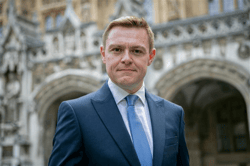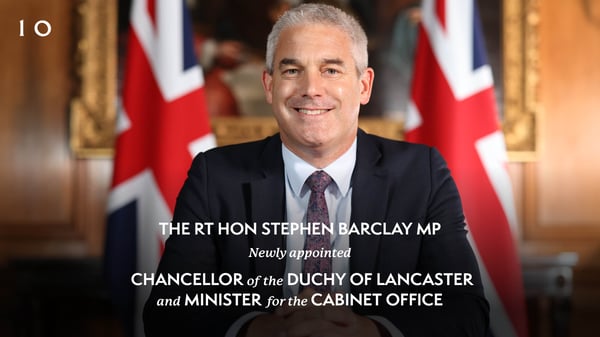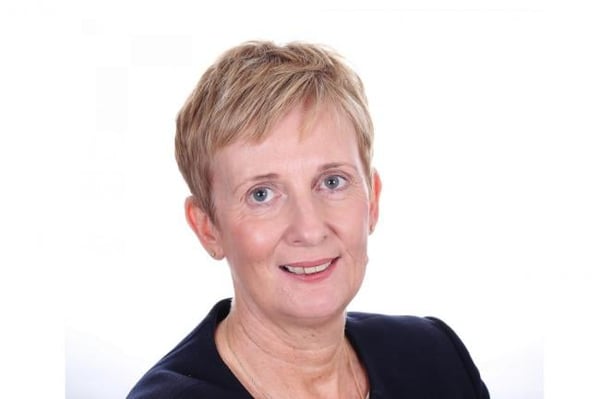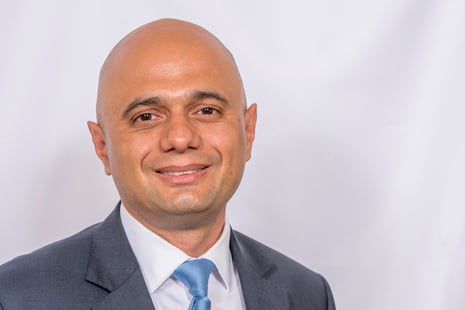Family Hubs transformation fund opens to local authority bids
Children and Families Minister Will Quince has outlined the Government's thinking as it invites applications from local authorities to a £12 million transformation fund to develop the 'Family Hubs' concept to reflect the needs of local communities, while adhering to three guiding principles.
 "The family hub model builds on what we have learned, what local councils and professionals have learned, and what families have told us all, about how to give them the very best support we can – the support that they deserve. This is summarised in the three principles that characterise and define family hubs – access, connections, and relationships," said Quince in a speech yesterday at the Implementing Family Hubs virtual conference.
"The family hub model builds on what we have learned, what local councils and professionals have learned, and what families have told us all, about how to give them the very best support we can – the support that they deserve. This is summarised in the three principles that characterise and define family hubs – access, connections, and relationships," said Quince in a speech yesterday at the Implementing Family Hubs virtual conference.
This is part of a £20 million of investment on Family Hubs in 10 local authorities, announced in the Summer, which established the National Centre for Family Hubs.
Access & accessibility
According to the Minister, Family hubs will need to be designed to make it easier for parents and carers to access services, both physically and virtually, by bringing together services to support families from conception all the way up to young people of 19 – or up to 25 for special educational needs.
Quince cited the example of Suffolk County Council which has identified a need for better reach and engagement with vulnerable families, and are working to ensure that families see the hub as a ‘positive place’ to go for children of all ages, not somewhere to go only when you have a problem.
"An effective family hub acts a single ‘front door’, making it easier for families to navigate what can be a complex system. The aim is to make the family hub a non-stigmatising access point for universal services – such as those crucial Start for Life services - with additional help on offer for those who need it most," said Quince.
Connection: data-enabled delivery
More than co-location – "physical proximity can be important and helpful, that alone does not create the joined-up services that families need" - this is about ensuring that services are delivered to those in need through effective governance, data sharing and integrated assessment, case management, and shared outcomes.
Quince noted that there are many challenges to overcome so that families experience effective joined up services:
"Data and digital are key. We are working with a number of local authorities to identify solutions," he said. "Families should feel this in their experience of using the hub – that they tell their story once, and are then connected to the help they need."
Family Hubs should connect families with services and support from others, in a joined up way – whether that is links to more targeted health services, links with schools and education settings, support from charity or community groups, or even other parents.
Relationships
This principle reflects what Josh MacAlister has heard in his work on the Independent Review of Children’s Social Care, and captured in the Case for Change: Family Hubs must involve greater integration between the people, professionals and leaders that work with families.
Local authorities with a hub model have used this to drive changes and improvements in their work with families, placing a greater emphasis on relationships, and sustaining these as families and children grow. An example of this is Leeds, where building on community strengths and enhanced whole family working by professionals is key to their practice model.
Transforming family services
Quince was speaking following the Chancellor's announcement of a £300 million package to transform services for parents and babies, carers and children in half of the local authorities across England.
The new funding will provide thousands of families access to support and includes funding to create a family hub network, for local authorities to publish their Start for Life offer, support for breast feeding, parent-infant relationships and parenting programmes.
The package also includes a smaller number of pilots to trial and evaluate innovative workforce models needed to support babies and families.







